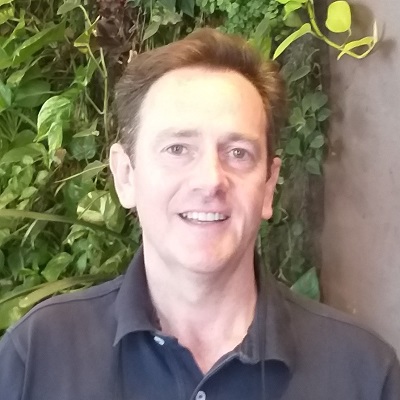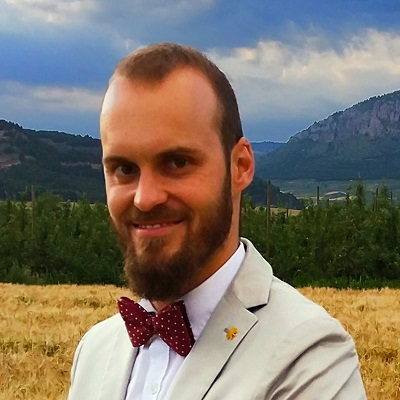Lifelong Learning Master's in City and Technology II
Lifelong Learning Master's in City and Technology II
Presentation
IAAC’s Master in City & Technology (1 or 2-year program) is a unique program oriented towards redefining the analysis, planning, and design of twenty-first-century cities and beyond.The program offers expertise in the design of digitally enhanced, ecological and human-centered urban environments by intersecting the disciplines of urbanism and data science. Taking place in Barcelona, the capital of urbanism, the Master is training the professionals that city administrations, governments, industries, and communities need, to transform the urban environment in the era of big data.With a focus on three main fields of operation,The Internet of Cities,The Internet of Buildings and The Internet of People, the programme explores digital technologies (from data analytics and Artificial Intelligence to generative and parametric design) to develop holistic urban and architectural projects that bring a positive impact to the built environment and the society that inhabits it.
During the second year of the Master's programme, students have the unique opportunity to work for an additional time of 9 months on an Individual Thesis Project, focused on the development of one research or pilot project based on the student’s interest. IAAC supports the student in selecting their Thesis Project topic in order to better orient them according to their future career interests and opportunities. Each student is assigned one or more Thesis Advisors that follow the development of the work throughout the year.
In parallel to the development of the Thesis Project Studio, the second year of the Master offers a series of seminars enhancing both the theoretical, practical and computational skills of the students.
The MaCT is a programme for architects, urbanists, designers, computer scientists, engineers, data scientists and entrepreneurs that want to become urban technologists and lead the future of urban environments. If you are passionate about combining design and data science in order to lead the positive transformation of cities and you are willing to work together with multidisciplinary experts, industries and city administrations on real case studies for the acceleration of urban innovation and intelligent design, then the MaCT is made for you
Program
MODULE 1- RS: Research Studio
- Seminar 1: Theory Concepts: City Intelligence I
- Seminar 2. Theory Instruments: Future Mobility
- Seminar 3. Computational Urban Design I
- Seminar 4. Digital Tools: Big Data and Urban Analytics I
Classes take place from October to December, Monday to Friday, from 10h to 19h.
MODULE 2
- DS: Design Studio
- Seminar 5. Digital Tools: Computational Urban Design II
- Seminar 6. Theory Concepts: City Intelligence II
- Seminar 7. Theory Instruments: Participatory Design & Technologies
- Seminar 8. Digital Tools: Big Data & Urban Analytics II
Classes take place from January to March, Monday to Friday, from 10h to 19h.
MODULE 3
- Lecture Series
- Seminar 9.Digital Tools: Computational Urban Design III
- Seminar 10. Digital Tools: Big Data & Urban Analytics III
- Seminar 11. Theory Instruments: AI and Data-Driven Resilient Cities
- Seminar 12. Theory Concepts: City Intelligence III
Classes take place from April to June, Monday to Friday, from 10h to 19h.
DVS-DEVELOPMENT STUDIO
- DvS-Development Studio
Classes take place from April to June, Monday to Friday, from 10h to 19h.
PHASE 5
- TP1. Final Thesis Project: Theory and Analysis
- Seminar 13: Research and Methods
Classes take place from October to December, Monday to Friday, from 10h to 19h.
PHASE 6
- Seminar 14: Digital Tools I: Urban Technologies
- Seminar 15: Digital Tools III: Artificial Intelligence (AI) for Future Cities
- TP2. Final Thesis Project: Research
- Seminar 16: Practise Fabrication: Digital Manufacturing in the Future City
Classes take place from January to March, Monday to Friday, from 10h to 19h.
FINAL THESIS PROJECT
- TP3. Final Thesis Project: Development
Classes take place from October to Junio, Monday to Friday, from 10h to 19h.
Coordinators and teaching staff
Other information
TUITION FEES
Importe matrícula nacionales UE: 26400
Importe matrícula nacionales españoles: 15900
ADMISSION REQUIREMENTS
Bachelor Degree: For architects, urbanists, designers, data and computer scientists who want to become urban technologists and lead the future of urban environments.
Application process:
Applications are considered on the basis of an assessment of the quality of prospective students, their motivation, skills and previous academic achievements. Candidates are encouraged to give details of their motivation to study any particular programme. Once applications are reviewed, candidates will be invited to an online interview with the IAAC academic coordinator of the program. IAAC applications can be submitted each academic year.
To apply for any of our educational programmes, the applicant must fill out the online application form.
For the online application, the following required documents should all be submitted in English, with the exception of the undergraduate diploma that needs to be translated into Spanish. (All documents must be uploaded onto the designated space on the online application form in PDF format).
For more information on the process, please visit www.iaac.net
ISSUANCE OF ACADEMIC DEGREES
The rate in force at the time of issuance of the title will be applied
PLACE WHERE IT TAKES PLACE
Barcelona Institute for Advanced Architecture of Catalonia (IAAC)
PRE-REGISTRATION
03/05/2023 until 01/10/2023
REGISTRATION
03/05/2023
FURTHER INFORMATION
https://iaac.net/educational-programmes/masters-programmes/master-in-city-technology/















